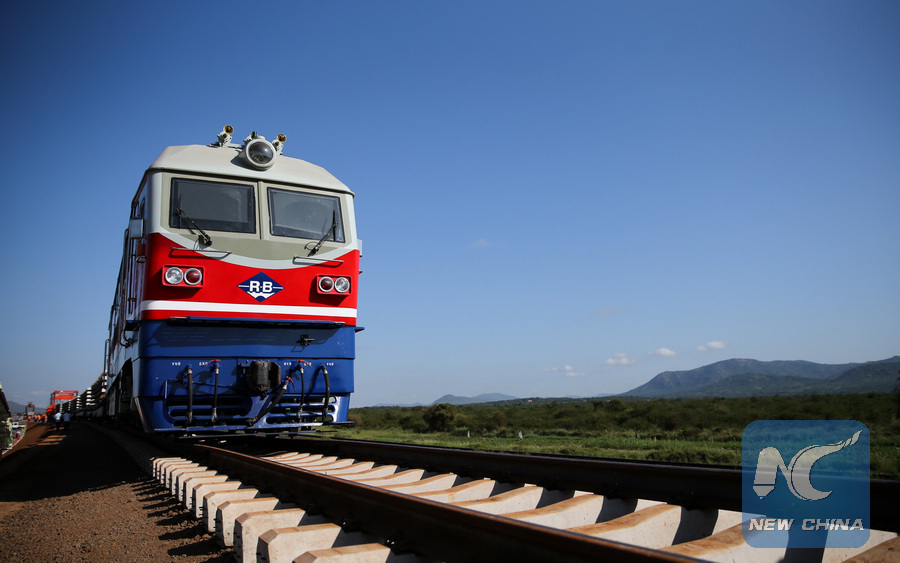
A locomotive is seen at a construction site of the Standard Gauge Railway (SGR) project, near Sultan Halmud, Kenya, on May 28, 2016. Kenyan President Uhuru Kenyatta said Saturday China-funded high speed railway which runs from the coastal city of Mombasa to Nairobi will be completed ahead of the schedule. (Xinhua/Pan Siwei)
ADDIS ABABA, Feb. 12 (Xinhua) -- The World Bank has called for aggressive investment in infrastructure and land markets reform to speed up economic growth in African cities.
A report "Africa's Cities: Opening Doors to the World", released by the World Bank on Thursday, underlined that infrastructure investment and land market reforms are key to accelerating economic growth, adding jobs and improving city competitiveness.
It noted that to grow economically as they are growing in size, Africa's cities must open their doors and connect to the world.
Africa's urban population stands at 472 million people, and as cities grow in size, another 187 million people are expected be added to urban areas by 2025.
Africa's urban population will double over the next 25 years, reaching 1 billion people by 2040, predicted the report.
The report however said investments in African cities' infrastructure, industrial and commercial structures have not kept pace with the concentration of people, and neither have investments in affordable formal housing.
There is great potential for coordinated investments in infrastructure, residential and commercial structures, which will enhance agglomeration economies and connect people with jobs, it said.
Due to lack of this connection, African cities are among the costliest in the world both for businesses and for households, leaving cities out of "service and closed for business."
"What Africa needs are more affordable, connected, and livable cities," said Makhtar Diop, WB Vice President for Africa.
The report said Africa is urbanizing at lower incomes than other developing regions with similar urbanization levels.
Rapid urbanization at lower incomes means that capital investment in African cities has remained relatively low in the region for the past four decades, at around 20 percent of GDP, according to the report, which noted that in contrast, urbanizing countries in East Asia like China and Japan stepped up capital investment during their rapid urbanization.
African cities are 29 percent more expensive than cities in countries at similar income levels. African households face higher costs relative to their capita GDP with housing costing 55 percent more than in other regions, the report indicated.
The key to freeing Africa's cities from their low-development trap is to set them on path toward physical and economic density, connecting them for higher efficiency and boosting expectations for the future, according to the report.

